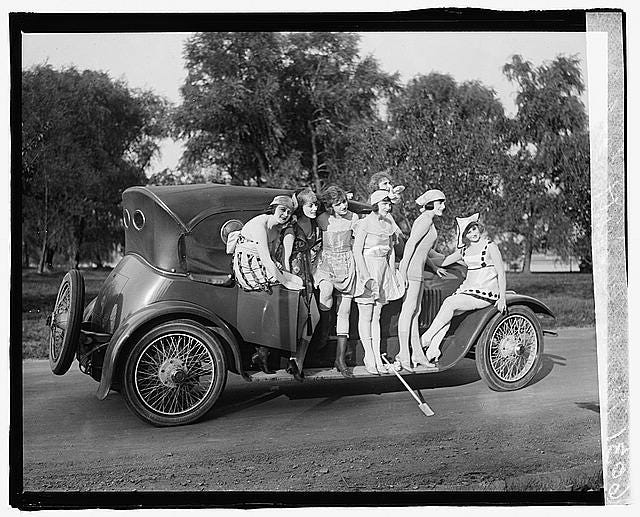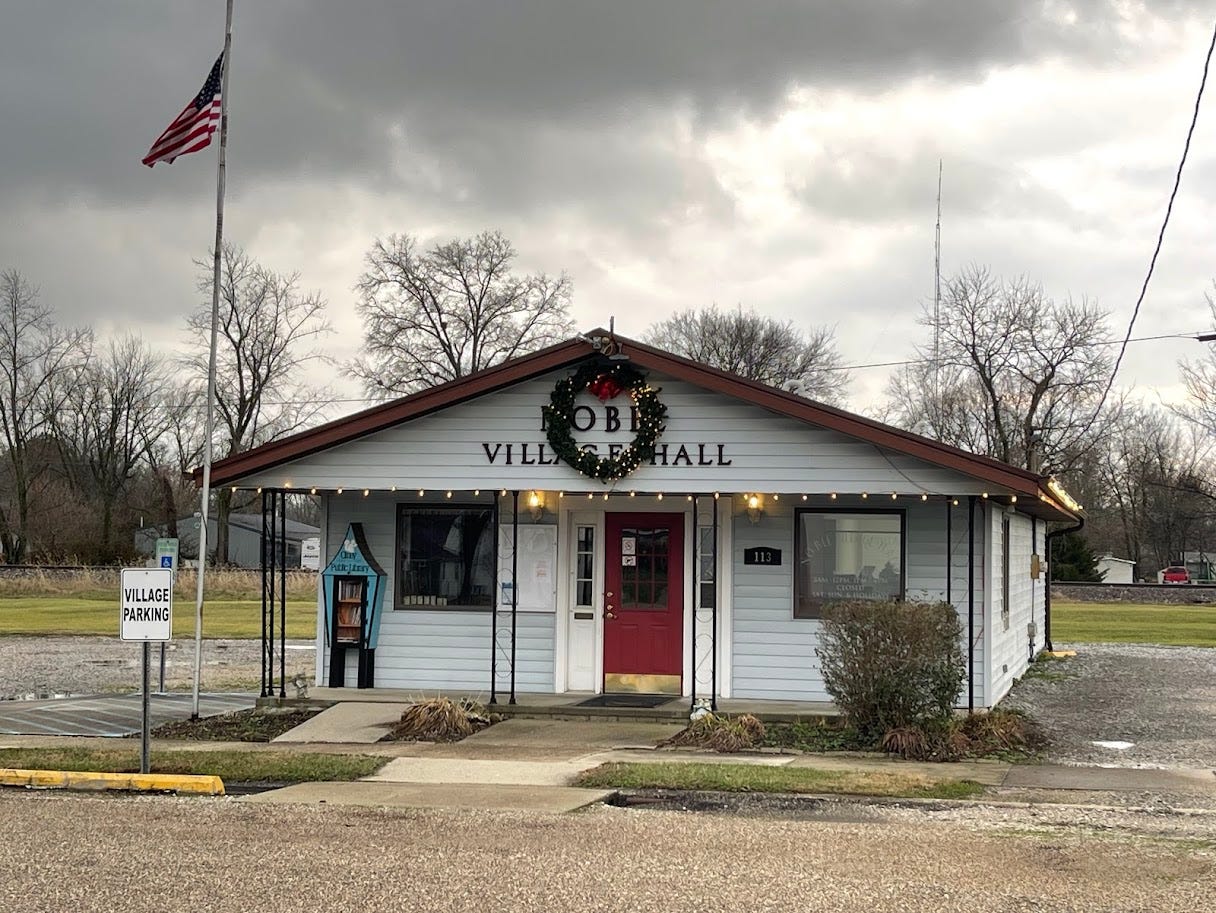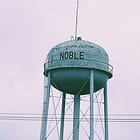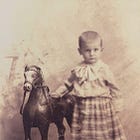A Boy Named Virgil, Part 6: A Meeting Place and Moving Pictures
Tales from a Small Village in Southern Illinois Circa 1900
A Boy Named Virgil is the first-person account of Virgil Bravard Browne, based on a letter he wrote to his niece, Marcia Moore Sagebiel, in 1958. The story is edited and read by me, his grandnephew. Read the introduction.
The Goodwins had the first restaurant in town with a separate room known as an ice cream parlor. Ice cream sodas and ice cream sundaes were five cents. Add nuts for another nickel. Those were happy days.
It was the meeting place for small town sports, and the spot to take your lady love after the moving picture show.
The moving picture show was housed in a two-story cement block building with a wooden outside stairway. The seats were wooden folding chairs.
Since there was no power plant in our town, the show operators had to supply their own power, which they accomplished by installing a Fairbanks-Morse, two-horsepower, single-cylinder gasoline engine in a small shed beside the opera house. The engine was connected to an electric generator using a flat belt, providing enough current for the operation of the projector and to supply the lights for the building.
It was a very faithful little engine.
But at times, as with all machinery, something would go wrong and the steady beat of its exhaust would die down to a gasp and finally stop, leaving everything in darkness until a couple of big kerosene lamps would be lit by one of the operators. Meanwhile, the other operator would hurriedly dash down the stairway to get the engine going again, which generally took only a short time since these early-day engines were easily and quickly repaired.
So, in a few minutes you would hear the staccato beat of it, first slowly, then faster, while the light bulbs would show a dull yellow gradually gaining brilliance until, at last, they burst into the brightness they were supposed to have, which by today’s standards was none too brilliant.
But to us small-town people, who were not critical, it was wonderful compared to the dull yellow light of the kerosene lamps, which was standard lighting equipment for us.
The films of that day had western plots with their attendant stagecoaches, six guns and cowboys dashing after the cattle rustlers on rearing horses, the good triumphing over the baddies, of course.
They also featured Mack Sennett’s bathing beauties, with costumes for water sports so ample that they could have been used for winter sports of this day, a far cry from modern bikinis. They included comedy cops and gooey pies in the face and a wide assortment of pratfalls, all for producing lots of laughs.

It was strictly crude slapstick comedy, for we had not been introduced to the subtle humor of the present time. And if it had been shown to us, I doubt if we would have understood it sufficiently to appreciate it. It was a lusty age, and the actors who engaged in film work must have been hardy to survive the physical abuse they underwent.
At times a stock company would play our town, some using tents while others rented the opera house. The plays included “Ten Nights in a Barroom,” “Uncle Tom’s Cabin” (these two I saw at least three times), “East Lynne” and “Rebecca of Sunnybrook Farm,” among others.
I recall that each time I saw “Uncle Tom’s Cabin” I would fall madly in love with Little Eva, thinking that she was about my age, which was 12 at that time. I was sorely disgusted when I discovered later that she was a small blonde woman who was about 30 years old but made up to play a juvenile. Luckily, I had not revealed this puppy love to anyone and was thus spared being made fun of.
A lingering memory is when Little Eva was transported to heaven from her deathbed and slowly rose up and up until she finally disappeared from our vision into the top of the tent. Much later I found this was done by a rigging of black steel wire, a block and tackle and a couple of husky roustabouts, which accounted for the jerkiness of her ascent.
The audience was in awe of the spectacle. And at the quick closing of the stage curtain (so they could get Little Eva down from the top of the tent), there was a sigh from the audience that sounded like a summer breeze.
Of such things the dreams of youth are made.
Thank you for reading. If you liked this slice of FRIED BOLOGNA, please click the 🤍. Access the archives.










Absolute Americana. It's wonderful.
Great story, love it! And your “quiet” crush on Little Eva.😊 Enjoyed the read!